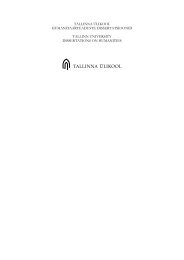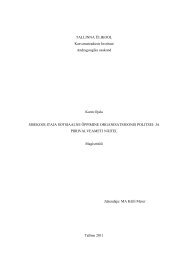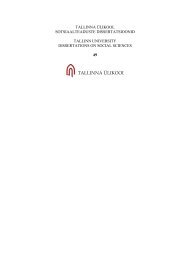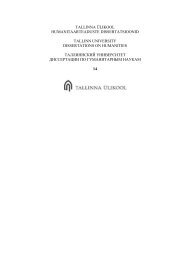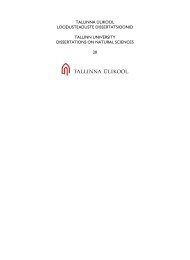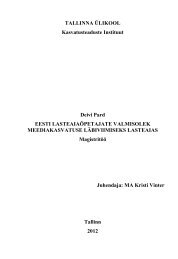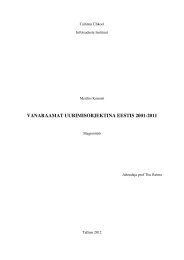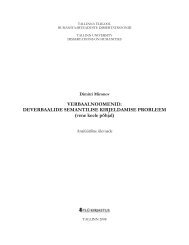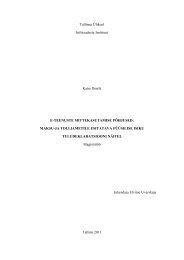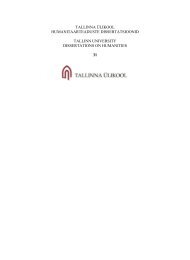Download (1157Kb) - E-Ait
Download (1157Kb) - E-Ait
Download (1157Kb) - E-Ait
You also want an ePaper? Increase the reach of your titles
YUMPU automatically turns print PDFs into web optimized ePapers that Google loves.
of 21(71%)) and library forums (7 of 21 respondents (33%)). The forums mentioned in the<br />
findings refers to meetings by TLA while best practices involve learning from exhibitions<br />
and learning from other libraries. Sharing will help university libraries leverage knowledge<br />
from those who are more successful and use the knowledge to improve the performance of<br />
their libraries. Once there is a strong collaboration between them, it is easy to extend the<br />
collaboration outside of the country where they will find many things to learn.<br />
It is an opportunity for Tanzania public university libraries to take advantage of technology to<br />
enhance the sharing of knowledge. The use of networked computers will help libraries reduce<br />
the constraints pertaining to distance and time. The vast number of electronic tools to<br />
facilitate knowledge sharing such as electronic mail, internet, collaboration technology tools<br />
such as wikis and audio visual tools, bulletin boards, news groups and many others are<br />
available at their disposal to facilitate the distribution of knowledge between Library staff and<br />
among libraries. However they should be cautious to balance the use of technology and the<br />
balance of the quality of output. Technology makes it easy to share knowledge and reuse the<br />
available knowledge but once the system is flooded with information it becomes a serious<br />
problem. It slows down the retrieval processes and makes the selection of appropriate<br />
information challenging.<br />
4.3. The use of intellectual capital to improve knowledge sharing.<br />
4.3.1. Human capital perspective<br />
The dynamics in the social, economic and technological environments require libraries to<br />
rethink how they approach their day to day work. Even though different libraries face unique<br />
challenges depending on the social, economic and technological environments surrounding<br />
them, the value of human capital is greater now than ever if a positive result is to be achieved.<br />
The need to compromise with the changing environment comes with a high demand to<br />
improve the quality of employees in our libraries. To effect this, library policies guiding the<br />
hiring and upgrading the employee skills need to reflect awareness of the changing<br />
environment. Performance incentives and training programs are essential to empower and<br />
motivate employees. Modern human capital policies will provide libraries with a means to<br />
improve their performance and lead to efficiency as a way to effectively serve their users.<br />
The notion that considers training as a cost needs to be changed so that it is viewed as an<br />
52



